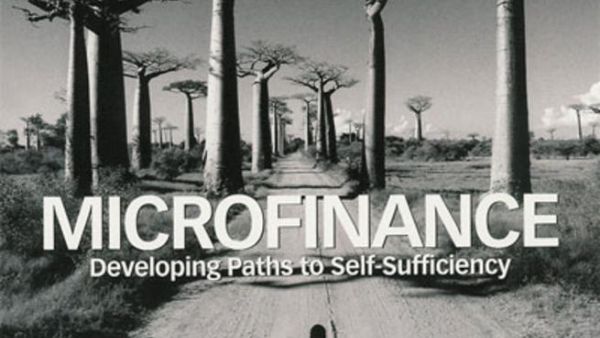Microfinance practitioners in the Arab world have “misinterpreted” the system’s true principles, Nobel Peace Prize laureate Muhammad Yunus told The Daily Star Saturday. Microlending, designed by its founders to help the ‘poorest of the poor’ jump-start livelihoods, fail to reach the region’s most disempowered. That’s mostly due to the fact that Arab microcreditors are not themselves financial institutions, limiting the amount of funds creditors may disburse, Yunus explained.
Dubbed “the world’s banker to the poor,” Yunus founded the first microlending institution, Grameen Bank, in Dhaka, Bangladesh in 1986. The Bank is considered the culmination of a seven-year research project where Yunus worked to design a credit system for Bangladesh’s rural poor. Ninety-seven percent of Grameen Bank’s customers are women.
It’s a banking system where clients are given small loans – around $400 on average – without collateral to secure repayment. To offset the risk, interest rates are notoriously high. According to Grameen Bank, not-for-profit Microfinance Institutions charge between 25 percent to 33 percent, on average, for general loans. Those sky-high interest rates have forced many poor to become seriously weighed down by debt. Late last year, the Indian government called for a widespread default on microloans, putting the sector on the brink of collapse.
Yunus is adamant, however, that those incidents were only a perversion of microfinance principles. In June 2011, the government of Bangladesh capped microlending interest at 27 percent. Grameen Bank, itself, offers a maximum rate of 20 percent. “[Microfinance Banking] works. And it works as well, or better than, any banking system,” said Yunus. Yunus and Grameen Bank won the Nobel Peace Prize in 2006 for “their efforts to create economic and social development from below.”
Arab microfinancing, he reckons, needs two things. First, lawmakers should pass a banking law for the poor, transforming microlending from a charity-like affair to a financial sector. Second, the government should create a microfinance regulatory authority that would set norms for interest rates and set standards for the quality of services.
Tunisia, the veritable birthplace of the Arab Spring, is one example of Arab microlending practices gone awry. Though deposed autocrat Zine al-Abidine Ben Ali formalized microfinance through the Banque Tunisienne du Solidarite, in practice, claims Yunus, transactions operated through a “charity window,” making funds limited.
A microfinance institution that functions as a real bank can better supply credit because its funds may self-generate through the balance regularly struck by banks between deposits and loans. Depending on donors, conversely, means funds cannot be continuous. While Tunisia’s microcredit program, considered to be the largest in the Arab world, catered to “only a fraction” of the country’s poor, Bangladesh’s MFIs provide for more than 80 percent of the poor there.
Some microfinance gurus have noted, with some irony, that the Arab Spring was triggered by a microentrepreneur: Mohammad Bouazizi, the Tunisian vegetable vendor who set himself ablaze after being harassedby police. It’s being seen as a testament to the inadequacy of microlending in that country, widely hailed by the developed world for its liberal economic models. Yunus admits that the concept is “not a silver bullet” when it comes to unemployment and poverty. But it is a powerful tool, similar in scale to state of the art Information Technology that “unleashed” the fury of the youth on their autocrats.
Microcredit puts a south asian woman struggling to make ends meet “on the drivers seat of her life.” IT enabled youth to break free from the stringent policing of government. They are two sides of the same coin. “That freedom, that cutting of the link – the umbilical chord – it’s when society starts emerging, and this is what’s happening through microcredit and IT.” And there is a great deal of economic reward to be reaped from a democratic uprising, seen to be sweeping the Arab world, said Yunus. “There’s a missing link.” It is a resource-rich region, but poverty is rampant. The youth can correct that disparity in its democratic transitions, he said. And he has some recommendations for how to go about this. Education systems must be upgraded, with higher education centers being better distributed throughout the region to minimize duplication.
Local governments should be better maintained, so that political control is more decentralized. Arab history, said Yunus, is fraught with examples of social and economic progress. The youth can revive that past. “You are the luckiest generation in entire human history,” Yunus told fired-up crowds at the One Young World summit in Zurich Saturday. “The whole world is waiting … how will you shift gears?”








